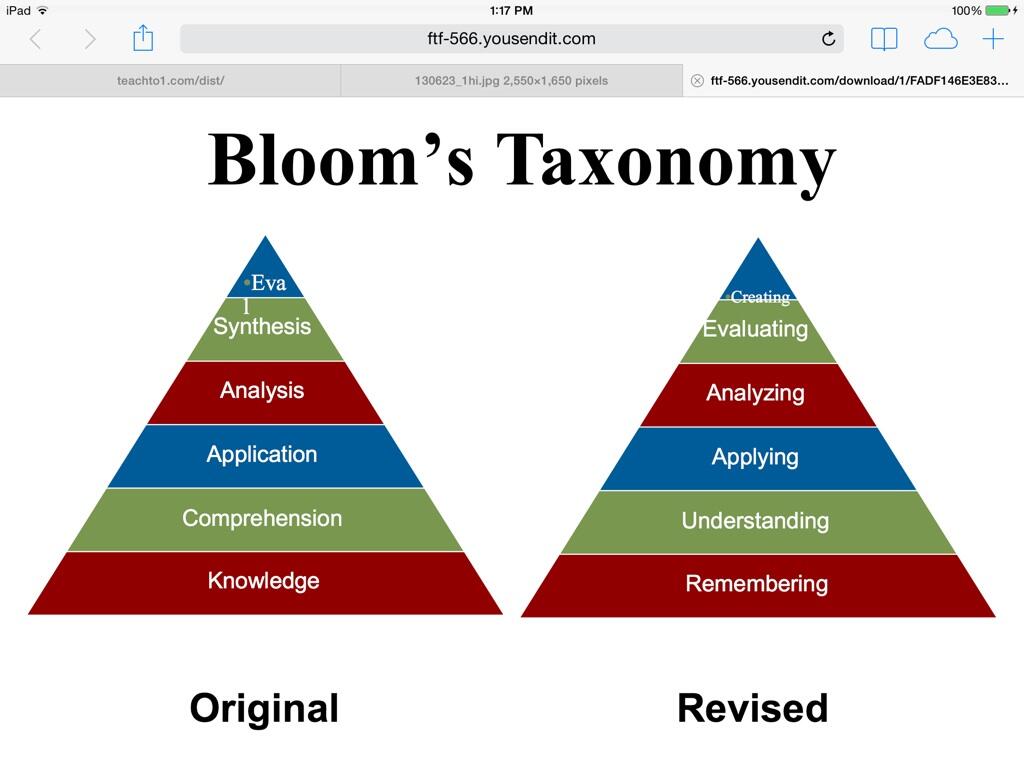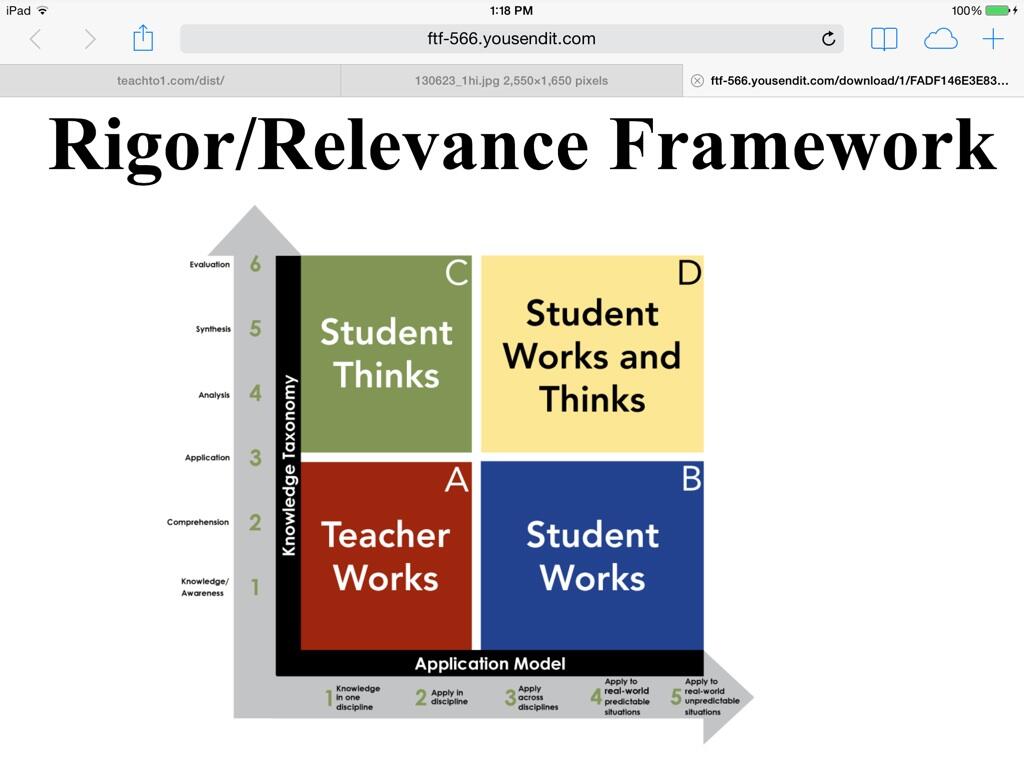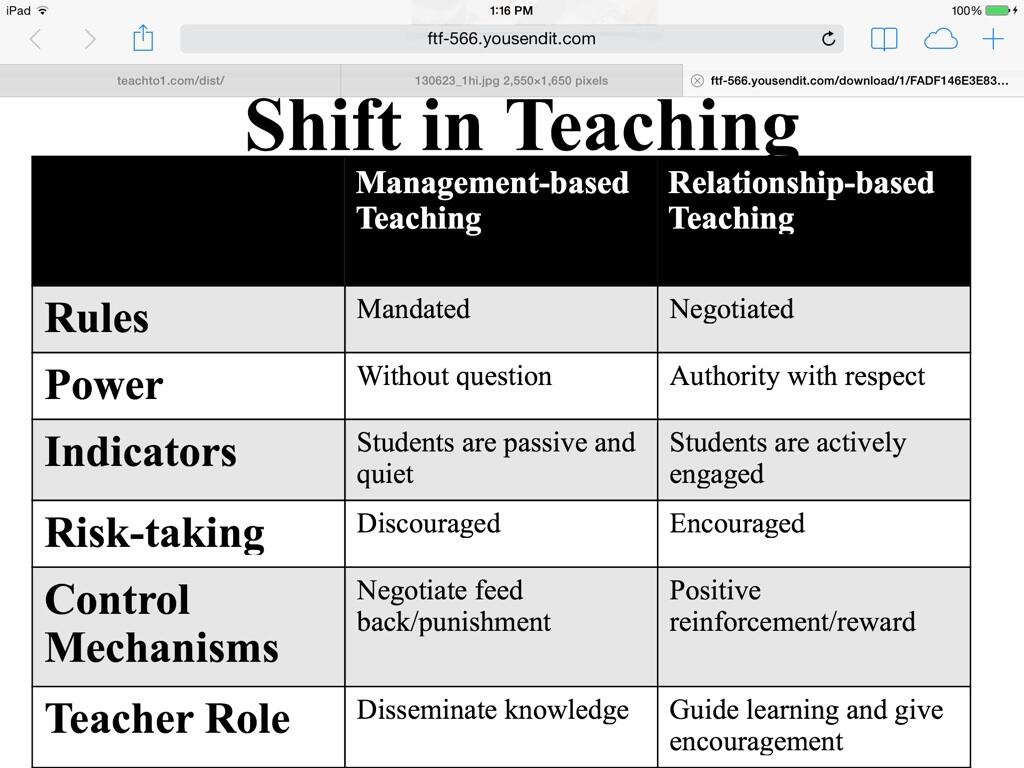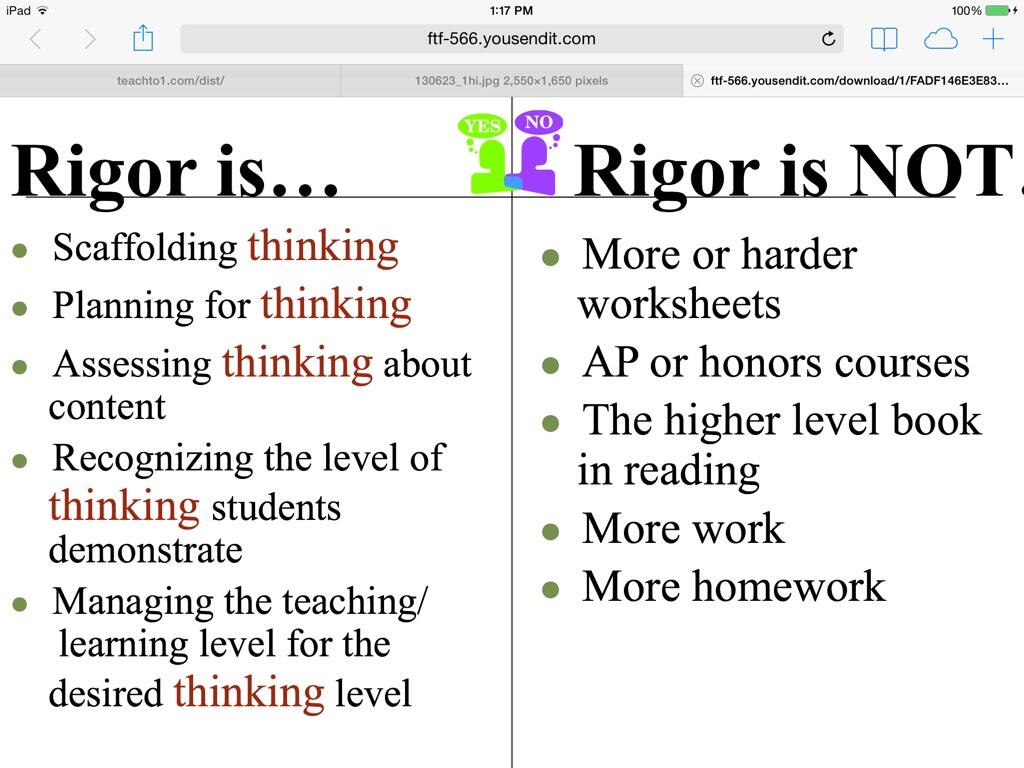The above visual helps me understand and share the relationships between the "posts of learning" (differentiation, feedback and reflection) and the "rails of learning" (instruct, practice and assess). I see each of the "rails of learning" as phases in the learning process, where each has a component of differentiation, feedback and reflection.
Planning:
- Let's use Understanding by Design (UbD), determine the Big Ideas and either create the Essential Questions (EQs) or empower our students to create them.
- Build in as many connections to prior knowledge and ideas of abstraction to create the curiosity and lead the innovative thought-process.
- Build our learning around our "unpacked" learning outcomes or standards with Standard-Based Learning (SBL). Let's have our students help us "unpack" the standards to write them in student-friendly language.
Instruct:
- Let's be aware of the prior knowledge of our students as we integrate concepts and stretch everyone's thinking.
- As I recently learned at the Right Question Institute (RQI), let's leverage questions as a way to peak curiosity, share the ownership of learning with our students and help to pave the way to innovation.
Practice:
- During our collaborative time, let's practice so we can learn to make and learn from mistakes. Let's lead the force to fail early and fail often paving the way to success.
- Let's prompt students to think regularly, not just do or perform. Too much of school has been about compliance and performance rather than about collaborative learning.
- Students should be encouraged to practice any and all concepts with which they are not yet proficient.
- Practice should not be graded. Let's allow students to practice with no fear of getting it wrong. Practice should be just that, practice.
Assess:
- To encourage all students to learn, let's offer various ways for students to demonstrate their proficiency. Empower students to learn and assess without fear by encouraging all learners to reassess until that they have that "aha" moment. Let's lead learners to practice until they don't get it wrong versus until they get it right.
- I plan to use more Exit Tickets (with tech) for Formative Assessments (FAs).
- Assess more often but on fewer learning outcomes or standards. (SBL)
Let's plan to incorporate differentiation, feedback and reflection into as many phases or aspects of our learning. Learning is an individual thing, though it is strengthened through collaboration.




